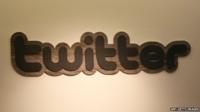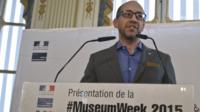Minecraft owner Microsoft is investigating reports the Turkish government is preparing to ban the game, the BBC understands.
A Turkish Family and Social Policies Ministry study said the game promoted violence, according to local media.
There were conflicting reports about what action the government was planning to take as a result.
Some said it would ask a court to ban the game, others that it would ask Microsoft to edit it.
According to the Haberturk newspaper, the ministry's report said: "Although the game can be seen as encouraging creativity in children by letting them build houses, farmlands and bridges, mobs [hostile creatures] must be killed in order to protect these structures. In short, the game is based on violence."
'Social isolation'The report said some children could confuse Minecraft with the real world and be led to believe torturing animals would cause no pain, the newspaper reported.
It added the report was based on the experience of a nine-year-old and suggested playing Minecraft could lead to "social isolation".
Haberturk reported the ministry's legal affairs department had been instructed to take the first steps towards banning Minecraft.
But, according to Fatih Oke, a spokesman for the Turkish Embassy in Washington DC, a ban was "out of the question".
Mr Oke told Christian Science Monitor: "There will be no ban.
"The game is not banned and is not going to be banned.
The Family and Social Policy Ministry does not have that kind of authority to ban any product.
"I understand that this is what has been said in the Turkish media, but it is incorrect.
"The ministry can only work with complaints.
"In this case, I am told there were numerous complaints from parents about Minecraft and its influence on children.
"The function of this ministry is to raise awareness."
The government would not be able to unilaterally ban the game, it would have to convince a court to do so.
While Turkey is not noted for banning computer games, some websites have been taken down recently.
Last year, access to both Twitter and YouTube was temporarily shut down, while Facebook was required to block some pages said to insult the Prophet Muhammad in January this year.
'Creative freedom'A spokesman for Mojang, which makes Minecraft under the Microsoft umbrella after the latter bought the game for $2.5bn (£1.68bn) in September 2014, would not comment directly on the reports.
He said: "Minecraft is enjoyed by many players in a wide variety of ways.
"Many enjoy the creative freedom that's presented by Minecraft and its tools, some are more interested by the opportunity to explore a landscape without boundaries and to go on exciting adventures with friends.
"We encourage players to cooperate in order to succeed, whether they're building, exploring, or adventuring.
"The world of Minecraft can be a dangerous place: it's inhabited by scary, genderless monsters that come out at night.
"It might be necessary to defend against them to survive.
"If people find this level of fantasy conflict upsetting, we would encourage them to play in Creative Mode, or to enable the Peaceful setting.
"Both of these options will prevent monsters from appearing in the world."



